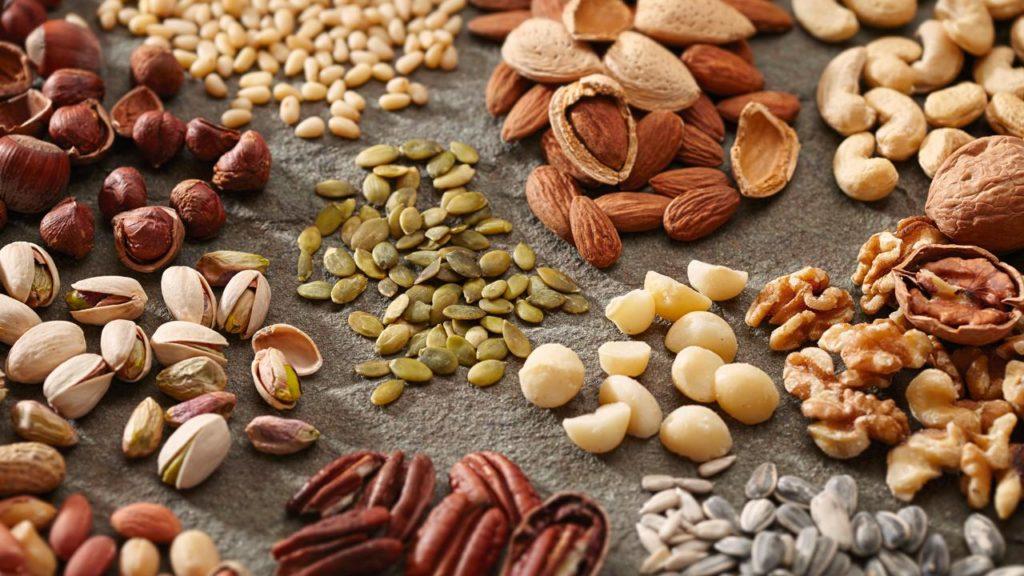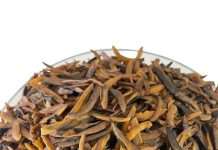A study of more than 200,000 people – many of whom were followed for more than three decades – found all types of nuts helped prevent the world’s biggest killer. Strikingly, the Harvard University researchers said they also found no evidence that nuts fuelled weight gain, despite their high calorie content and previous reports to the contrary.
Regular snacking on walnuts, almonds, hazelnuts, cashews, pistachios, pecans and peanuts achieved dramatic results compared to those who rarely or never ate them.
Those who ate any of these tree nuts two or more times a week were 23 and 15 percent less likely to develop coronary heart disease or cardiovascular disease, respectively.
The same amount of peanuts – which strictly speaking are a legume – also reduced the risk of the conditions by 15 and 13 percent, respectively.
Eating walnuts one or more times per week reduced coronary heart disease and cardiovascular disease risk by 21 and 19 percent, respectively.

Nuts have long been regarded a ‘superfood’ as they are high in antioxidants, proteins, nutrients, minerals and fiber.
The latest study is the biggest and longest running of its kind.
Along with heart disease they have been found to protect against a host of serious illnesses including cancer, diabetes, respiratory conditions and dementia.
Lead author Dr Marta Guasch-Ferre, a nutritionist at Harvard University in Boston, said: ‘Our findings support recommendations of increasing the intake of a variety of nuts, as part of healthy dietary patterns, to reduce the risk of chronic disease in the general populations.’
Her large-scale analysis showed a consistent link between the quantities of nuts consumed and cardiovascular disease and coronary heart disease.
Those who ate five or more servings of nuts a week had a 14 percent lower risk of cardiovascular disease and a 20 percent lower risk of coronary heart disease.
The results were similar for tree nuts – which also include macadamias, Brazil nuts and chestnuts – and peanuts individually.
Eating peanuts and walnuts was also found to reduce the risk of stroke.
The study published in the Journal of the American College of Cardiology said recent dietary recommendations have shifted towards including higher quantities of nuts.
This is due to their unique nutritional composition reducing risk factors for cardiovascular disease.Peanuts were included because they have a similar fatty acid and nutrient profile.
Over 210,000 female nurses and male health professionals in the US were followed for up to 32 years providing information about their medical history, lifestyle and illnesses via self-administered questionnaires every two years.
Dr Guasch-Ferre and colleagues identified 14,136 cases of major cardiovascular disease along with 8,390 of coronary heart disease and 5,910 of stroke – some of which were fatal.
Dr Emilio Ros, of the Endocrinology and Nutrition service at the Hospital Clinic in Barcelona reviewed the results for the journal and said their consistency suggests nuts really do protect against heart disease.
Raw nuts, if possible unpeeled and unprocessed, may be considered as natural health capsules for your heart, Dr Emilio Ros, of the Endocrinology and Nutrition service at the Hospital Clinic in Barcelona stated.
He said: ‘Ideally further investigations should test the effects of long-term consumption of nuts supplemented into the usual diet on hard cardiometabolic events.
‘In the meantime, raw nuts, if possible unpeeled and otherwise unprocessed, may be considered as natural health capsules that can be easily incorporated into any heart-protective diet to further cardiovascular well-being and promote healthy aging.’
Cardiovascular diseases are conditions such as heart disease and strokes which involve a reduced blood flow to the heart, brain or body due to a blockage or narrowing of the arteries.
Coronary heart disease is when fatty substances in the walls of the arteries and affects 2.3 million people in Britain – causing 69,000 heart attacks each year.
Heart disease remains the number one killer in the UK with 160,000 people dying from it each year.
Daily Mail Online











